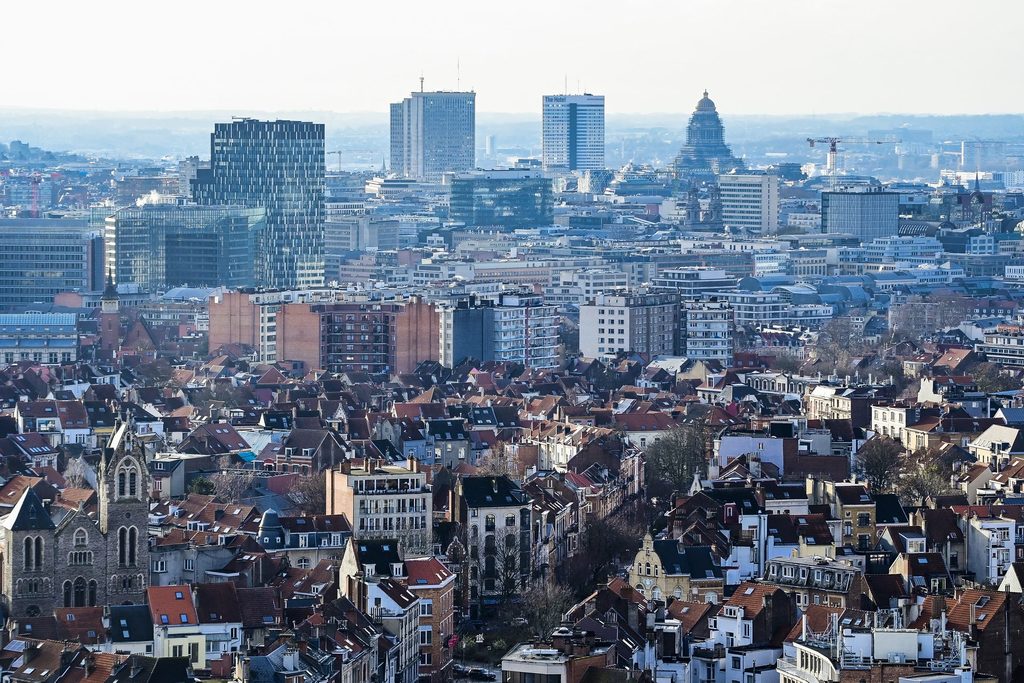The battle between the Brussels-Capital Region and short-term accommodation platforms such as Airbnb has taken a new twist: the Short Term Rental (STR) association filed a request for annulment of Brussels' rules with the Constitutional Court.
At the heart of the issue is the specificity of the Brussels framework that governs online accommodation booking platforms, says STR (which defends operators of non-hotel tourist accommodation). The Capital Region recently tightened the conditions for those wanting to rent out their homes temporarily – in a bid to strike a balance between economic activity and the protection of the housing market.
"We will challenge the ordinance because it does not comply with the European Services Directive, which provides a framework for entrepreneurial freedom," STR president Grégory Huon told Le Soir.
In its memorandum, published at the end of July, the association called the issue of short-term rentals "complex and multifaceted" and regretted that the Brussels restrictions were proposed "based on electoral considerations, without scientific evidence of the real impact of this activity on the housing crisis."
Stumbling blocks
The ordinance states that anyone wishing to offer Airbnb or other tourist accommodation in Brussels must register with the regional authorities. This requires various documents, such as an extract of the owner's criminal record and a fire safety certificate, as well as a conformity certificate from urban planning.
The last document, in particular, has proven to be a stumbling block as waiting times are very long and the Capital Region's 19 municipalities – which are in charge of issuing these certificates – all interpret the rules differently.
Combined with the higher fines for those circumventing the rules, some Brussels MPs feared that the new regulations amount to a de facto Airbnb ban.

Credit: Belga
Instead of considering regulation based on constraints, the STR association is encouraging the parties who will make up Brussels' next government to design regulation for the sector "in terms of opportunities and from a holistic approach."
Previously, the Court of Justice of the European Union ruled on the situation in Paris, where the authorities have the right to introduce licensing schemes in the public interest – but the rules must be proportionate to the objective pursued, the Court stressed.
Recent studies found that Airbnb and others are taking up scarce real estate in big cities, as well as being directly linked to higher neighbourhood rents. In Brussels, Airbnbs are most concentrated in the touristic centre (Bruxelles 1000), the European district (Schuman and Leopold Park), Ixelles and Saint-Gilles.
In these areas, there is an average increase of 1.6% in the local rental market for every Airbnb per 100 households. With some neighbourhoods in central Brussels measuring Airbnb densities above 20, the cumulative impact on local housing is major.
Coexisting with private operators
"We understand the housing problems in certain Brussels areas, but we advocate a neighbourhood-by-neighbourhood approach," said Huon. "That is not the case here, where we have the same rules for all 19 municipalities."
"We will also have to prove that the housing crisis is caused by tourist accommodation when there are 7,000 to 8,000 Airbnb-type accommodations and 60,000 households waiting for social housing," he added. "This current tourist accommodation, most of which is illegal, represents less than 2% of the total number of housing units in the Brussels-Capital Region."
The STR association is asking the regional authorities to focus on properly recognising the short-term rental sector instead of implementing restrictions. "The current policy has led to a record percentage of clandestine short-term rentals: more than 95% of the market is illegal."
Related News
- EU approves 'Airbnb law' to protect affordable housing in cities
- The blight of 'illegal' Airbnbs: Brussels takes steps to protect affordable housing
- Record holiday bookings via online platforms fuel concerns of overtourism
"Why not create a regulatory framework that allows professional operators to have the right to coexist with private operators, and obliges all operators to have quality labels and use 'state of the art' solutions (such as smart noise meters)? Everyone would benefit from this," the association added. "Any prohibition policy inevitably leads to failure."
Neither Airbnb nor Brussels Minister-President Rudi Vervoort's (PS) office responded to a request for comment from Le Soir on the appeal to the Constitutional Court.

